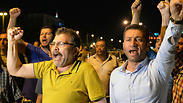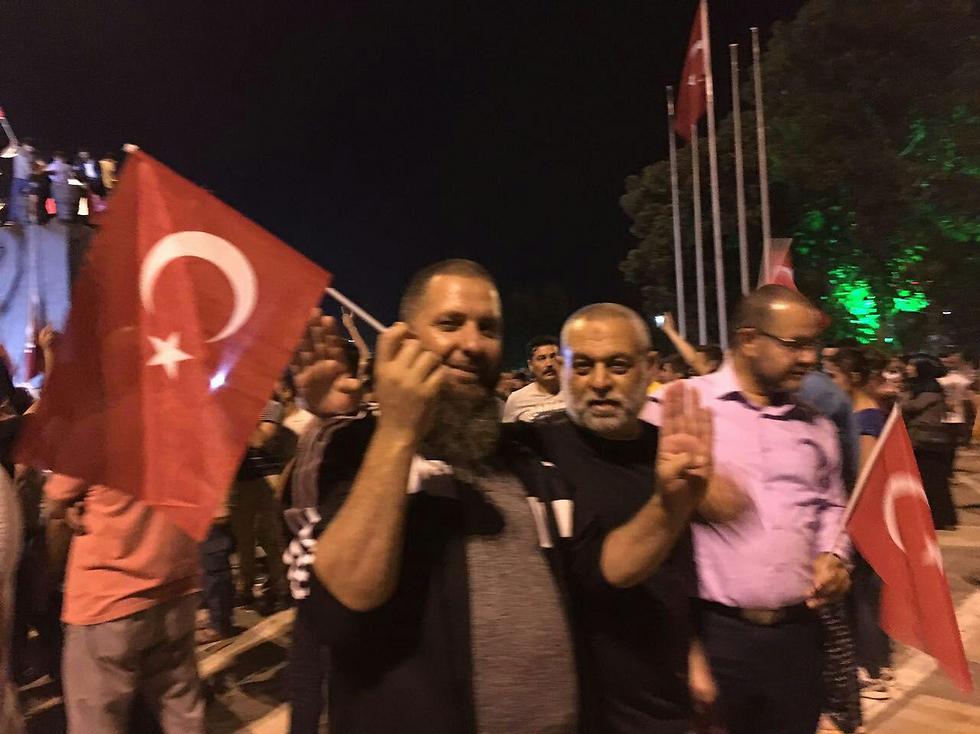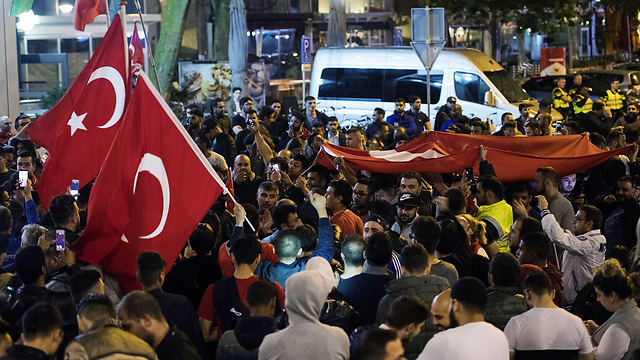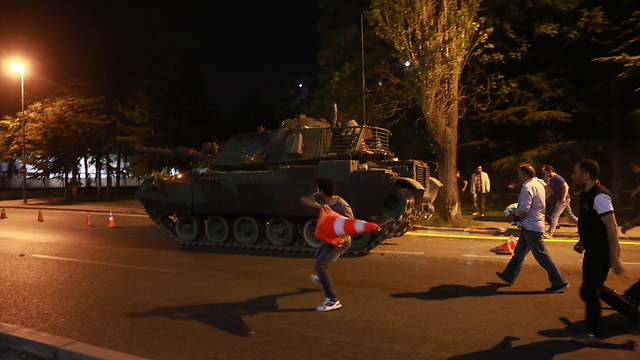
How Erdogan won
Analysis: President Recep Tayyip Erdogan has managed to hold onto power following an attempted coup Friday night. Ron ben Yishai and other experts shed some light on how the Turkish president was able to maintain his grip on power.
Yedioth Ahronoth Security Commentator Ron Ben Yishai spoke in a special interview on the coup attempt in Turkey, and why it failed.
"The coup wasn't supported by the entirety of the military – a large part of the military supports Erdogan, and even went out to defend his rule. If the rebels would have captured Erdogan at the beginning, (this failure –ed) wouldn't have happened. The fact that Erdogan was able to make phone calls and send messages to the outside world and to his supporters really saved him."
"The big surprise," ben Yishai continued, "were the masses who responded to Erdogans call to confront the military. Most of the soldiers and commanders didn't want to shoot at civilians, especially when they saw huge crowds of them. Erdogan's political party has a grip on power – and when the military saw the Turkish people go out into the streets to support the president, the coup ended."
Former Israeli Consulate General to Istanbul Eli Shaked says that the possibility of a coup has been hanging over the government for years.
"There are pockets of resistance to Erdogan's Islamist policies, resistance to the direction he's leading the country in, and resistance to his failed policies regarding how the country deals with terror"
Erdogan supporters gathered primarily in Istanbul. According to Shaked, "despite the fact that Istanbul is a super western city, there are millions of people who live in the suburbs who come from small villages throughout the country and who maintain their conservative and religious ways of life. They are natural supporters of Erdogan."
"I believe that there are also shows of support similar to the ones in Istanbul in (the Turkish capital of) Ankara," the former consul general continued, "otherwise the people who tried to overthrow the government would have succeeded in their coup attempt."
He went on to say that it seems that the conservative public are the real winners in this attempt, and those are the people who form Erdogan's support base.
Turkey expert at the Institute for National Security Studies (INSS) Gallia Lindenstrauss said that following this coup attempt, Erdogan is likely to be "more tyrannical in his actions. It seems that this attempt has also solidified his position as president for as long as he wants. The question is what he wants to do after consolidating his power."
"It won't be good for his opponents," she added. "There will be more suspicion and more background checks. Regarding foreign relations, we saw Erdogan taking a pragmatic line when it came to Israel, Russia, and Syria before the coup attempt."
In contrast to previous coups, Lindenstrauss stresses that "this was just one well organized group from within the military. However, Erdogan has a strong base of his own, and the government was stable enough to keep the coup from succeeding."
Erdogan accused Islamic Cleric Fethullah Gulen of fanning the flames, thus leading to the bitter fighting and coup attempt. Lindenstrauss said "(Gulen) started off as Erdogan's ally for the first several years, but something happened and he became a traitor in Erdogan's eyes. However, he doesn't have strong connections with the military – he has more influence in the courts and amongst the police. The military is actually very suspicious of him. Therefore, Erdogan's claims (that Gulen was involved in the coup –ed) are less believable."
She then went on to say that "the heads of the opposition parties were opposed to the attempted coup. Coups are not really very popular in Turkey. Even people who don't support Erdogan don't support coups."













